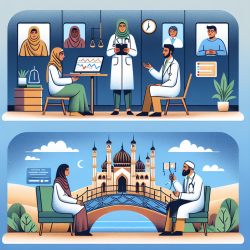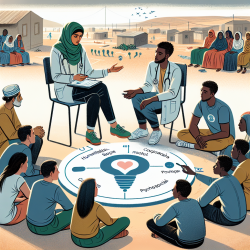The intersection of race and mental health care is a critical issue that requires immediate attention. Recent research from Faber et al. (2023) titled "The weaponization of medicine: Early psychosis in the Black community and the need for racially informed mental healthcare" highlights the stark disparities in the diagnosis and treatment of psychotic disorders in Black communities. This blog aims to provide practitioners with actionable insights to improve their skills and encourage further research based on the outcomes of this study.
Understanding the Disparities
Black individuals are diagnosed with schizophrenia-spectrum disorders at rates three to four times higher than their White counterparts. This overdiagnosis is not due to genetic differences but is largely attributed to racial biases in the healthcare system. Clinicians often misinterpret symptoms due to a lack of cultural competence, leading to incorrect diagnoses and inappropriate treatments.
Key Findings
The research identifies several critical issues:
- Implicit biases among clinicians lead to overdiagnosis of schizophrenia in Black patients.
- Black patients often receive substandard care and are more likely to be prescribed older, more harmful medications.
- Law enforcement is frequently the first point of contact for Black individuals experiencing early psychosis, leading to criminalization rather than medical intervention.
Actionable Steps for Practitioners
To address these disparities, practitioners can implement the following strategies:
1. Improve Diagnostic Accuracy
Utilize structured clinical interviews and consider racial and ethnic matching to minimize biases. Structured interviews have proven effective in improving diagnostic accuracy and can be adapted for real clinical settings.
2. Enhance Cultural Competence
Undergo anti-racism and cultural competence training to better understand the unique cultural and social contexts of Black patients. Training programs like the MGH/McLean Psychiatry residency program have shown positive outcomes in addressing racial inequities in mental health.
3. Public Education and Community Engagement
Increase mental health literacy in Black communities through targeted public awareness campaigns and community-based interventions. Initiatives like the "Depression is Real Campaign" in Louisville, KY, have successfully raised awareness about mental health issues in Black communities.
4. Rethink Law Enforcement's Role
Advocate for the separation of mental health interventions from policing. Programs like Denver's Support Team Assistance Response (STAR) have shown that healthcare workers can effectively handle mental health crises without police involvement.
Conclusion
Addressing the racial disparities in the diagnosis and treatment of psychosis in Black communities requires a multifaceted approach. By improving diagnostic accuracy, enhancing cultural competence, increasing public education, and rethinking the role of law enforcement, practitioners can make significant strides in providing equitable mental healthcare.To read the original research paper, please follow this link:
The weaponization of medicine: Early psychosis in the Black community and the need for racially informed mental healthcare.










